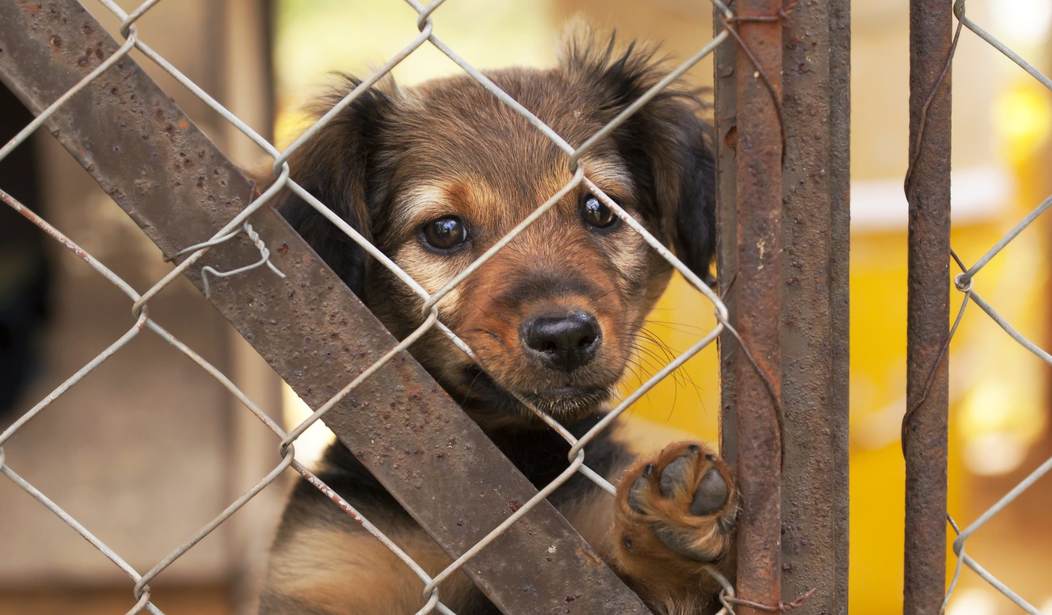I have worked with a small animal shelter and humane society as a board member for almost seven years now. I have seen countless examples of animal cruelty: puppies being thrown out of moving car windows; drug dealers training dogs to kill; and animal hoarding cases so bad that our staff had to use HAZMAT suits to enter the house and be treated for urea burns afterward. However, there is another type of animal cruelty that often goes unnoticed by the public, though it operates on a large scale. It comes by way of a machine that is well-organized and has many different people and organizations participating. I’m talking about “rescues” that operate networks for pure profit—at the expense of the dogs’ well-being.
Before I continue, I want to make something very, very clear. There is a fine line between helping animals and profiting from animals. I have worked with several wonderful rescues that will take hard cases, rehabilitate dogs, and find those dogs perfect, loving homes. I have also seen “rescues” that will stack cages of dogs onto each other, denying the dogs proper access to exercise, food, or veterinary care. Both can sometimes charge hundreds and hundreds of dollars for the “rescued” dogs.
So, how do you tell the difference between the good and bad ones? When you adopt a dog, how do you know if you are feeding a machine or actually helping our furry friends? Like many bad business actors, shady activities will happen with bad “rescues.” The problem is that many of these bad rescues play off of the emotions involved with adopting a dog. Most people adopt from rescues to help animals and they feel good thinking they are supporting an organization that helps animals. This is why many people, understandably, miss the warning signs. After all, it isn’t the dog’s fault it fell into the wrong hands.
Continue on to learn the signs of a bad dog “rescue”
First, visit the rescue itself. I am not talking about having a meeting with the head of the rescue at a location of his or her choosing, away from their facility. I am talking about going to the physical mailing address to see how the animals are being treated. Are they all stuffed into someone’s basement? Or, do they each have their own pen (cleaned daily) with access to the outdoors? The number one warning sign of a bad rescue is preventing prospective adopters from seeing the facility.
Does the rescue require a house visit? This in and of itself isn’t all that bad. Personally, I think it is a bit extreme and our shelter doesn’t require a home visit to verify that it is a good home. If it is a special needs dog this might be acceptable. However, if the rescue requires a home visit before giving you an adoption price, this is a big warning sign. Why? If the rescue is in it just for the money, a home visit is a great way for them to size up your bank account. How big is your house? What type of furniture do you own? The same can be said about asking for employment status before giving an adoption fee (they want to know how much can you afford to pay for a dog).
Next, ask for the dog’s veterinary records, and then follow up with the veterinarian. First of all, vet records are just plain good information to have about your dog. Second, it will tell you if the dog has been seen by a vet. Many vets are good at identifying animal abuse, so rescues that abuse their dogs tend to stay away from them. You should always follow up with the vet of record to ensure that the dog has been seen and to get feedback on care of this particular animal. It may also be a great way to start a good relationship with a vet for your new furry family member.
Finally, talk to the local humane society or dog pound about the particular rescue you are thinking of adopting from. They are not in competition, but rather, frequently partner with rescues. The humane society I work with has an extensive network of rescues we trust and work with. Frequently when we get a dog that matches their specialty (such as breed or health condition), we will transfer the dog to the rescue. Our objective is to find as many homes for as many dogs as possible. We don’t care if we find the home or if the rescue finds the home, we just want the dog out of a shelter and into a loving family.
I grew up with dogs and have never doubted that they are man’s best friend. It is sad to see so many people using our best friends for profit. Fortunately, there are ways of identifying rescues that want to help rather than just make money. At the very least, you can talk to local law enforcement (such as a dog warden). If there is something not quite right with a rescue operation, they need to know about it. I don’t want to dissuade you from adopting a rescue dog because many rescues do need your support. I just want to make sure your hard-earned money is going toward a good cause.









Join the conversation as a VIP Member